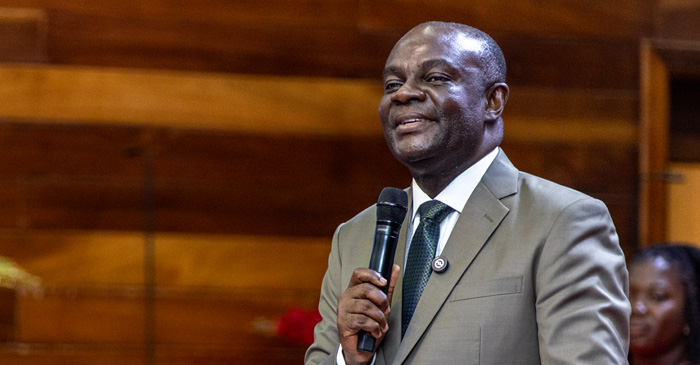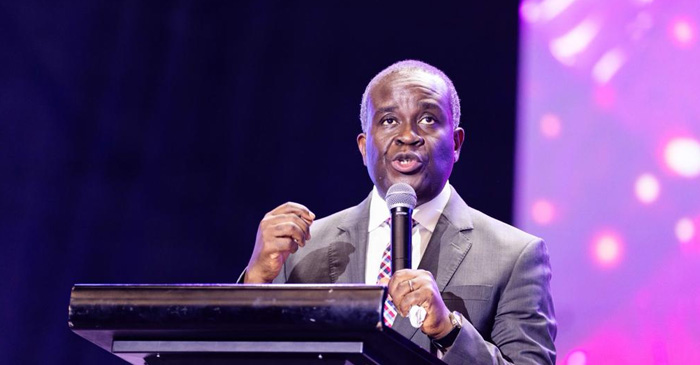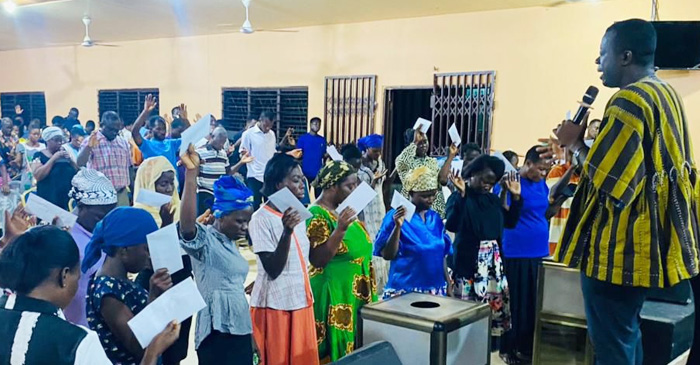
INTRODUCTION
Your digital presence is often the first (and sometimes only) impression others have of you as a Christian. Remember that your online presence is not separate from your Christian identity. The world is watching not just what you do in public but what you post in digital spaces.
In the old days, if someone made a mistake, it could be forgotten over time. No cameras were recording every moment, no internet to store embarrassing moments forever—just fading memories. But today, things are different; social media never forgets. Every post, comment, photo, or video you share stays online, sometimes forever. Even if you delete something, someone might have already saved it. We live in a world where a single reckless post can define our future or can come back years later to ruin job opportunities or friendships.
Social media includes all the apps and websites where people share things online. Some popular ones are Facebook for keeping up with family, Instagram and TikTok for sharing pictures and short videos, Twitter (now called X) for quick thoughts and news, WhatsApp and Snapchat for private chats, and YouTube for watching and making videos. The big difference between social media and old-school media like newspapers or TV is that anyone can post anything—good or bad—without needing permission. This freedom is great, but it also means people can easily share things they later regret.
As Christians, we are called to live lives worthy of our calling (Ephesians 4:1). This calling extends to every aspect of our lives—including our digital presence. We are unleashed to God’s purpose in our lives, but this freedom comes with responsibility, especially in spaces that never forget our words or actions. When you’re unleashed to shine online, your digital presence becomes more than just self-expression; it becomes a ministry. In a world where so many use social media to tear down, promote self, or spread negativity, your light can shine distinctly bright. As Matthew 5:16 encourages, “Let your light shine before others, that they may see your good deeds and glorify your Father in heaven.” This is our ultimate purpose online: not to bring attention to ourselves, but to reflect glory back to God.
HOW SOCIAL MEDIA IS DIFFERENT FROM THE PAST
Back in the day, life was simpler. If someone did something embarrassing, it wasn’t recorded and shared with the world. Except for God, private moments stayed private unless someone told others face-to-face. But now, everything changes the second it goes online. A silly mistake, a bad joke, or a heated argument can be screenshotted, shared, and spread to thousands of people in minutes. Even if you delete a post, it might already be saved somewhere else.
Imagine losing your dream job because of a tweet you wrote years ago as a teenager. That’s why it’s so important to think before you post. For young Christians especially, this reality presents both challenges and opportunities. Your digital footprint can either amplify your testimony or undermine it. Being unleashed to live a life worthy of your calling means recognizing that your online presence is an extension of your witness for Christ.
People get “canceled” after posting something offensive. Old tweets, Facebook rants, or embarrassing photos can resurface and damage reputations. Some have even faced legal trouble because of threatening messages or leaked private chats used as evidence in court. Scripture reminds us that “whatever is hidden will be revealed” (Luke 12:2-3). This spiritual principle finds a technological parallel in our digital age. As those unleashed to shine in a world that never forgets, we should approach each post with the awareness that our words have a lasting impact.
BEING WATCHED: YOUR DIGITAL WITNESS MATTERS
As Christians, we are always being observed—not just in person, but online as well. People who may never step foot in a church building are watching your posts, stories, and comments to see if your faith is genuine. They notice when:
- You post about loving God on Sunday but tear others down on Monday
- You share Bible verses but also inappropriate content
- You claim to follow Jesus but your online behavior suggests otherwise
THE GOOD AND BAD OF SOCIAL MEDIA
THE GOOD SIDE: Social media isn’t all bad—it has many great uses for those seeking to shine for Christ:
- Staying Connected – The church community can maintain fellowship across distances. You can video call family overseas for free, something that was expensive or impossible in the past.
- Learning New Things – Biblical teachings and devotionals are more accessible than ever. YouTube has tutorials for everything. Many people have even built careers from online courses.
- Growing Businesses – Christian entrepreneurs can align their businesses with their values and reach wider audiences. Small shops and creators use Instagram and TikTok to reach millions of customers without needing a big budget.
- Sharing Your Faith – Social media provides unprecedented opportunities to share testimonies, Bible verses, and encouragement with friends and followers, extending your ministry beyond physical gatherings.
THE BAD SIDE: But there are also serious downsides that can dim our light online:
- Cyberbullying – Because people can hide behind screens, bullying online is worse than ever. Hateful comments, fake profiles, and public shaming can lead to real-life harm. Christians are called to speak life, not death (Proverbs 18:21).
- Addiction – Many people waste hours mindlessly scrolling, losing sleep, and neglecting real-life responsibilities because social media is designed to keep you hooked. This can distract from our calling and purpose.
- Echo Chambers – We often only follow people who think like us, creating bubbles that reinforce our views without challenging us to grow. This limits our ability to love and understand others unlike ourselves.
WHAT THE BIBLE SAYS ABOUT SOCIAL MEDIA USE
The Bible was written long before the internet, but its wisdom still applies today for those unleashed to shine online:
Let your speech always be gracious, seasoned with salt (Colossians 4:6). This means we should speak (or post) with kindness, not cruelty. Don’t spread rumors or private things online. Respect confidentiality and privacy. Do not let any unwholesome talk come out of your mouths (Ephesians 4:29), meaning avoid hate speech, insults, and toxic behavior on social media. Instead, post what is helpful for building others up according to their needs. These principles remind us that our words matter, whether spoken or typed. Being unleashed to shine means bringing these biblical values into our digital interactions.
WHAT YOU SHOULD (AND SHOULDN’T) POST ONLINE
SAFE THINGS TO POST
- Positive messages: Inspirational quotes, encouraging words, and testimonies of God’s faithfulness.
- Educational content: Helpful tips, news, or interesting facts that edify others.
- Professional updates: Job achievements, school successes, or business promotions that honor God’s provision.
- Ministry moments: Church events, volunteer work, or mission trips that inspire others to serve.
- Family celebrations: Milestones and memories that show gratitude for God’s blessings.
DANGEROUS THINGS TO POST
- Personal arguments: Public fights can make you look bad and never truly disappear. Matthew 18:15 teaches us to resolve conflicts privately first.
- Financial details: Never share bank info, salary, or credit card numbers. Practice wise stewardship in all areas.
- Location check-ins: Telling strangers where you are can be a safety risk, especially for youth.
- Judgmental content: Harsh criticisms of others that don’t demonstrate Christ’s love or grace.
DIGITAL EVANGELISM: HOW CHRISTIAN YOUTH CAN SHARE THEIR FAITH ONLINE
As young believers unleashed to shine, you have unprecedented opportunities to spread God’s Word digitally:
- Share Your Testimony – Post about how God has worked in your life. Personal stories often reach people who would never click on a Bible verse.
- Create Faith-Based Content – Make videos, graphics, or write posts explaining biblical concepts in relatable ways. Use your creativity to make faith accessible.
- Engage Thoughtfully – When someone posts about struggles or questions, respond with compassionate, Christ-centered perspectives rather than judgment.
NB: Remember, digital evangelism isn’t about forcing your beliefs on others; it’s about shining Christ’s light naturally in spaces where people already gather.
HOW PARENTS CAN PROTECT THEIR KIDS ONLINE
Kids and teens don’t always understand the long-term effects of social media. Parents must step in to guide them in living worthy of their calling. By staying involved, parents can help their children avoid mistakes that could follow them for life and guide them in using social media in ways that allow them to shine for Christ.
- Monitor Their Accounts
- Follow your child on every platform they use.
- Make sure their profiles are private and they only accept friends they know in real life.
- Use parental controls when appropriate, explaining they’re for protection, not punishment.
- Teach Them About Consequences
- Explain that nothing online is truly private; even disappearing messages can be screenshotted.
- Share real stories of people who lost jobs or scholarships because of old posts.
- Connect digital choices to their Christian witness and future calling.
- Encourage Open Talks
- Let them know they can come to you if they see something scary or if someone bullies them online.
- Warn them about strangers who might pretend to be kids to trick them.
- Discuss difficult topics they might encounter online before they see them.
CONCLUSION
Social media is a powerful tool; it can help us connect, learn, and grow in our faith, but it can also dim our light if used carelessly. Being unleashed to shine in a world that never forgets means bringing your faith into every post, comment, and share. Before you post anything, ask yourself: Could this hurt someone? Is this necessary? Does this reflect Christ to others? Does this help or hinder my witness? Would I share this if Jesus was following my account?
Written by Derrick Decency Antwi (kingdecency55@gmail.com / WhatsApp: +233551955161)(Jato Zongo District, Atebubu Area, and Pentecost University Alumni)














